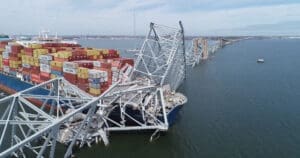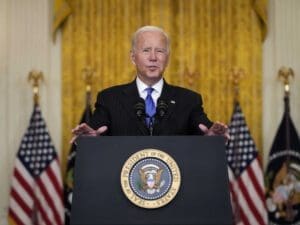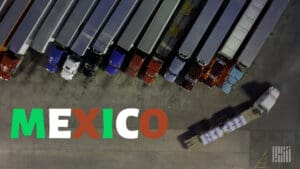 The Great North American Eclipse is coming. A total solar eclipse will take place at the Moon’s ascending node on Monday, April 8, 2024. A solar eclipse occurs when the Moon passes between Earth and the Sun, thereby obscuring the image of the Sun for a viewer on Earth. A total solar eclipse occurs when the Moon’s apparent diameter is larger than the Sun’s, blocking all direct sunlight, turning day into darkness. Totality occurs only in a narrow path across Earth’s surface, with the partial solar eclipse visible over a surrounding region thousands of miles wide. This eclipse will be the first total solar eclipse to be visible in the provinces of Canada since February 26, 1979, the first in Mexico since July 11, 1991, and the first in the United States since August 21, 2017. It will be the only total solar eclipse in the 21st century where totality will be visible in Mexico, the U.S., and Canada. It will also be the last total solar eclipse visible in the contiguous United States until August 23, 2044. And now on to this week’s logistics news.
The Great North American Eclipse is coming. A total solar eclipse will take place at the Moon’s ascending node on Monday, April 8, 2024. A solar eclipse occurs when the Moon passes between Earth and the Sun, thereby obscuring the image of the Sun for a viewer on Earth. A total solar eclipse occurs when the Moon’s apparent diameter is larger than the Sun’s, blocking all direct sunlight, turning day into darkness. Totality occurs only in a narrow path across Earth’s surface, with the partial solar eclipse visible over a surrounding region thousands of miles wide. This eclipse will be the first total solar eclipse to be visible in the provinces of Canada since February 26, 1979, the first in Mexico since July 11, 1991, and the first in the United States since August 21, 2017. It will be the only total solar eclipse in the 21st century where totality will be visible in Mexico, the U.S., and Canada. It will also be the last total solar eclipse visible in the contiguous United States until August 23, 2044. And now on to this week’s logistics news.
- Blue Yonder acquires one Network
- Descartes acquires OCR
- Second temporary channel opens in Baltimore Port
- Walmart hikes return fees
- Biden administration issues rule likely to push EVs
- Investment surges in Mexico as companies shift supply chains, plan new factories
- Samsung takes action over thousands of ‘unlawful’ D&D charges
![]() Blue Yonder, a leading provider of supply chain planning and execution solutions, announced signing an agreement to acquire One Network Enterprises for approximately $839 million. This is a significant acquisition that will change the supply chain software landscape. One Network provides supply chain planning, execution and a multi-enterprise supply chain network solution. When a MESN solution is combined with planning and execution, the software solution is capable of reacting with much more agility than traditional supply chain software. One Network offers the most agile solution in the market. Blue Yonder was acquired by Panasonic in 2021. After a period of quiescence, Panasonic agreed to aggressively invest in the business. This deal, when completed, will mark approximately $1 billion in M&A investments since the fourth quarter of 2023. This announcement comes on the heels of Blue Yonder’s acquisition of flexis AG, offering factory planning, sequencing and slotting capabilities, and Doddle, offering returns management and reverse logistics solutions.
Blue Yonder, a leading provider of supply chain planning and execution solutions, announced signing an agreement to acquire One Network Enterprises for approximately $839 million. This is a significant acquisition that will change the supply chain software landscape. One Network provides supply chain planning, execution and a multi-enterprise supply chain network solution. When a MESN solution is combined with planning and execution, the software solution is capable of reacting with much more agility than traditional supply chain software. One Network offers the most agile solution in the market. Blue Yonder was acquired by Panasonic in 2021. After a period of quiescence, Panasonic agreed to aggressively invest in the business. This deal, when completed, will mark approximately $1 billion in M&A investments since the fourth quarter of 2023. This announcement comes on the heels of Blue Yonder’s acquisition of flexis AG, offering factory planning, sequencing and slotting capabilities, and Doddle, offering returns management and reverse logistics solutions.
 Supply chain software vendor Descartes Systems Group has acquired OCR Services Inc., a provider of global trade compliance solutions and content that specializes in offering solutions and content export compliance and controlled commodities. The $90 million deal marks Descartes’ 30th acquisition since 2015. Other recent additions include Localz, Supply Vision, XPS Technologies, and Foxtrot, all in the last 24 months. Rockville, Maryland-based OCR says it helps customers streamline and automate processes around denied party screening, license procurement / management, and product classification. Its core platform, GlobalEASE, is used by blue-chip, multinational organizations around the world to stay current in a rapidly changing regulatory environment.
Supply chain software vendor Descartes Systems Group has acquired OCR Services Inc., a provider of global trade compliance solutions and content that specializes in offering solutions and content export compliance and controlled commodities. The $90 million deal marks Descartes’ 30th acquisition since 2015. Other recent additions include Localz, Supply Vision, XPS Technologies, and Foxtrot, all in the last 24 months. Rockville, Maryland-based OCR says it helps customers streamline and automate processes around denied party screening, license procurement / management, and product classification. Its core platform, GlobalEASE, is used by blue-chip, multinational organizations around the world to stay current in a rapidly changing regulatory environment.
 Crews opened a second temporary channel on Tuesday allowing a limited amount of marine traffic to bypass the wreckage of Baltimore’s collapsed Francis Scott Key Bridge, which had blocked the vital port’s main shipping channel since its destruction one week ago. Work is ongoing to open a third channel that will allow larger vessels to pass through the bottleneck, officials announced at a news conference Tuesday afternoon. The channels are primarily open to vessels that are helping with the cleanup effort, along with some barges and tugs that have been stuck in the Port of Baltimore. A tugboat pushing a fuel barge was the first vessel to use an alternate channel late Monday. It was supplying jet fuel to Delaware’s Dover Air Force Base.
Crews opened a second temporary channel on Tuesday allowing a limited amount of marine traffic to bypass the wreckage of Baltimore’s collapsed Francis Scott Key Bridge, which had blocked the vital port’s main shipping channel since its destruction one week ago. Work is ongoing to open a third channel that will allow larger vessels to pass through the bottleneck, officials announced at a news conference Tuesday afternoon. The channels are primarily open to vessels that are helping with the cleanup effort, along with some barges and tugs that have been stuck in the Port of Baltimore. A tugboat pushing a fuel barge was the first vessel to use an alternate channel late Monday. It was supplying jet fuel to Delaware’s Dover Air Force Base.
 Walmart has bumped up return shipping rates for seller-fulfilled orders as businesses try to strike the right balance between consumer-friendly returns policies and minimizing reverse logistics costs. Some are charging returns fees or toughening up their policies in other ways. Crafting an effective returns strategy is a particularly pressing challenge for online sellers. The National Retail Federation and Appriss Retail projected in December that online returns in the U.S. retail industry would reach $247 billion worth of merchandise in 2023, or 17.6 percent of total online sales. That’s a larger share than what was projected for brick-and-mortar shopping, with in-store returns worth 13.3 percent of total in-store sales. Sellers on Walmart Marketplace, the retailer’s e-commerce platform, can add a “Keep It Rule” to avoid paying for return shipping, per the March “Seller Digest.” The rule allows customers to keep their items and receive a full refund.
Walmart has bumped up return shipping rates for seller-fulfilled orders as businesses try to strike the right balance between consumer-friendly returns policies and minimizing reverse logistics costs. Some are charging returns fees or toughening up their policies in other ways. Crafting an effective returns strategy is a particularly pressing challenge for online sellers. The National Retail Federation and Appriss Retail projected in December that online returns in the U.S. retail industry would reach $247 billion worth of merchandise in 2023, or 17.6 percent of total online sales. That’s a larger share than what was projected for brick-and-mortar shopping, with in-store returns worth 13.3 percent of total in-store sales. Sellers on Walmart Marketplace, the retailer’s e-commerce platform, can add a “Keep It Rule” to avoid paying for return shipping, per the March “Seller Digest.” The rule allows customers to keep their items and receive a full refund.
 The Biden administration finalized a rule Friday that’s expected to make a greater share of the U.S. truck fleet electric. It’s difficult to say exactly what percentage of new heavy-duty truck sales could be expected to be electric under the rule, administration officials told reporters, noting that the rule deals with eight different classes of trucks. However, the share of the heaviest trucks’ sales that are electric would be expected to exceed 20 percent around 2040, officials said. One possible scenario outlined in the rule shows that sales of lighter heavy-duty trucks could be 60 percent electric in 2032, sales of medium heavy-duty trucks could be 40 percent electric in 2032 and sales of heavy heavy-duty trucks could be 30 percent electric in 2032. The truck rules do not explicitly mandate a shift toward electric vehicles (EVs). Instead, they set average pollution limits for truckmakers’ fleets that are expected to push them in the direction of electric and other lower-emitting technologies like hybrids.
The Biden administration finalized a rule Friday that’s expected to make a greater share of the U.S. truck fleet electric. It’s difficult to say exactly what percentage of new heavy-duty truck sales could be expected to be electric under the rule, administration officials told reporters, noting that the rule deals with eight different classes of trucks. However, the share of the heaviest trucks’ sales that are electric would be expected to exceed 20 percent around 2040, officials said. One possible scenario outlined in the rule shows that sales of lighter heavy-duty trucks could be 60 percent electric in 2032, sales of medium heavy-duty trucks could be 40 percent electric in 2032 and sales of heavy heavy-duty trucks could be 30 percent electric in 2032. The truck rules do not explicitly mandate a shift toward electric vehicles (EVs). Instead, they set average pollution limits for truckmakers’ fleets that are expected to push them in the direction of electric and other lower-emitting technologies like hybrids.
 Investment in Mexico has surged in the first three months of 2024 as more companies are looking south of the border to establish supply chain and manufacturing hubs, officials said. From January through mid-March, Mexico has received investment commitments worth more than $31 billion, compared to $36 billion total in 2023. Mexico has achieved a high number of investment announcements despite the fact some predicted “2024 could be a weak year due to the electoral year, both in Mexico and the United States, but the pace of the arrival of investments is not going to change. According to data from Mexico’s Ministry of Economy, some of the most recent investments include:
Investment in Mexico has surged in the first three months of 2024 as more companies are looking south of the border to establish supply chain and manufacturing hubs, officials said. From January through mid-March, Mexico has received investment commitments worth more than $31 billion, compared to $36 billion total in 2023. Mexico has achieved a high number of investment announcements despite the fact some predicted “2024 could be a weak year due to the electoral year, both in Mexico and the United States, but the pace of the arrival of investments is not going to change. According to data from Mexico’s Ministry of Economy, some of the most recent investments include:
- Mercado Libre, e-commerce: $2.4 billion
- Walmart, retail: $2.1 billion
- Yokohama Tire Corp., automotive industry: $380 million
- IKD, automotive parts supplier: $178 million
- Minth Group, automotive industry: $173 million
- Carnot Laboratories, pharmaceutical industry: $142 million.
Other companies making recent investment announcements in Mexico include Amazon, DHL Supply Chain, Volkswagen, Maersk, FEMSA, Ternium, Solarever, ELAM-FAW and Unison Shanghai.
 Samsung Electronics America (SEA) has filed two complaints with the US FMC over “excessive and unlawful” detention and demurrage (D&D) charges issued by Cosco and OOCL. Both complaints involve D&D fees for goods shipped under “store door” terms, which cover delivery to a port and onto an inland destination, as offered by both lines. The case against Cosco notes: “Beginning in approximately 2020, Cosco began repeatedly failing to properly perform its obligations for inland transportation to the inland destinations. Aware of challenges with intermodal transportation logistics, Cosco continued to transport SEA goods on store door terms … and continued to repeatedly fail to properly perform its inland transportation obligations, exposing SEA to unreasonable costs, charges, delays, and other harms.”
Samsung Electronics America (SEA) has filed two complaints with the US FMC over “excessive and unlawful” detention and demurrage (D&D) charges issued by Cosco and OOCL. Both complaints involve D&D fees for goods shipped under “store door” terms, which cover delivery to a port and onto an inland destination, as offered by both lines. The case against Cosco notes: “Beginning in approximately 2020, Cosco began repeatedly failing to properly perform its obligations for inland transportation to the inland destinations. Aware of challenges with intermodal transportation logistics, Cosco continued to transport SEA goods on store door terms … and continued to repeatedly fail to properly perform its inland transportation obligations, exposing SEA to unreasonable costs, charges, delays, and other harms.”
That’s all for this week. Enjoy the weekend and the song of the week, Black Hole Sun by Soundgarden.
















